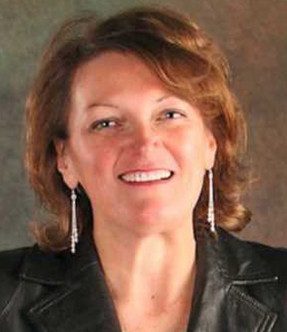Offering bilingual services gives brokers the opportunity to distinguish their brand from the competition, reach new clientele, increase sales, and enhance their real estate company’s diversity. But bilingual agents aren’t exactly abundant; only about 15 percent of real estate agents say they speak a second language, according to the National Association of REALTORS®.
So as a broker, should you go out and recruit a bilingual agent tomorrow? It depends on your market.
Rory Coakley, president of Coakley Realty in the Maryland, Virginia, and Washington, D.C. area, says his market is one where hiring bilingual agents pays off.
“This area is just so diverse. You can walk down a street in Washington, D.C., and hear all kinds of languages,” says Coakley.
Buyers and sellers who don’t speak English or who speak it as a second language are sometimes worried they’ll be swindled in a real estate deal if they’re not working with an agent who speaks their native language, he says.
Coakley’s company has been offering customers bilingual sales associates since it opened 27 years ago. His agency includes agents who speak fluent Spanish and Chinese and one who is certified in American Sign Language. He markets his bilingual agents’ skills on his website and in branded materials to let people know they are there to assist.
Serving Hispanic clients specifically has become a focus for many brokers throughout the country. Four out of 10 new households between 2010 and 2020 are expected to be Hispanic, according to the 2014 State Of Hispanic Home Ownership Report, published by the National Association of Hispanic Real Estate Professionals. The report also predicts Hispanics will comprise 50 percent of all new home buyers by 2020.
Joe Castillo, broker-owner of Mi Casa Real Estate in Chicago, has 45 agents, all of whom speak both Spanish and English.
“The name of our agency is very ethnic. So people in general assume you have to speak Spanish. And the neighborhoods we work in are largely Hispanic,” he says.
But he warns against the assumption that everyone in Hispanic areas needs or wants a Spanish-speaking agent.
“Eighty percent of our clientele do speak Spanish,” he says, “but a majority of them prefer to handle their business in English.”
Castillo says it’s important to look at your market data to determine whether your brokerage is fulfilling the needs of those who are moving into the area. For example, the neighborhoods his company services in Chicago are 95 percent Hispanic, but he’s also seeing more Hispanics of all ages move into other areas of the city. “Brokers in those areas could have some more deals if they hired a bilingual agent,” he says.
Recruit to Sell
Charlie Oppler has been in the real estate business 35 years. He lives and works in a very diverse area about a mile outside the city of New York. As broker-owner of Prominent Properties Sotheby’s International Realty in Tenafly, N.J., he’s learned that people often like to live near those of the same culture or nationality, which is how cultural pockets develop, such as a Little Italy or a Chinatown.
“When I first got my license in 1981, the market was more English- and Spanish-speaking,” he says. As the population grew, agents who spoke Armenian, Greek, and Russian joined his office. Today, Oppler’s agency of 525 agents offers 35 spoken languages, including Hindu, Swedish, Vietnamese, Japanese, French, Turkish, and more.
“Getting that many bilingual agents really happened because of the need for serving their own clientele where they live,” he says. But he says he’s not recruiting for language or nationality; he’s recruiting the people he thinks can sell real estate.
“Everyone has the same inventory, but not everyone has the same contact base,” Oppler says. “We look at whether they can be successful in this business and whether it is worth our time and investment to further their career.”
Broaden Your Network
Once you’ve identified the need in your market, Castillo, who is the incoming president of the Chicago chapter of NAHREP, says getting involved in an ethnic organization is a great way to network and get to know agents in the industry who are bilingual. Many real estate groups that support specific nationalities and languages exist, including the Chinese American Real Estate Association, Asian Real Estate Association of America, and others. Many chambers of commerce also have bilingual groups.
It’s important to show potential agents that your company has specific opportunities, training, and support for them. “Bilingual agents are looking for the same things as other agents,” Castillo says.
Brokers interested in offering bilingual services should also be prepared to expand their sphere to include bilingual lenders, attorneys, home inspectors, and other professionals who are part of the home buying process.
Savvy brokers will provide a great service to anyone who seeks help buying or selling a house. The key is to find good salespeople who reflect your client base and to develop a diverse referral network in order to position your brand for success.




